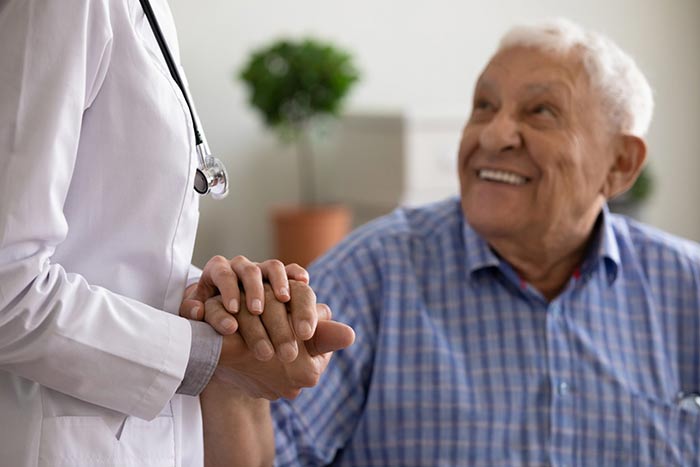Proper foot care is essential for older adults because it can help prevent injuries, falls and complications from chronic diseases like diabetes.
At Emory Healthcare, we support healthy feet through diagnosis and treatment of foot and ankle conditions for all ages. Learn how to properly care for your feet so they can continue to take you wherever you need to go.
10 Expert Tips for Senior Foot Health
1. Be good to your soles.
As you age, the muscle tissue in your feet can thin and your nerves may not work effectively. This can lead to loss of feeling in your feet (neuropathy). Use a long-handled mirror – it will extend your reach several inches – to see what you may not feel. Examine the soles of your feet and in-between your toes every day for cuts, blisters, sores or any areas of skin breakdown from moisture. This is especially important if you have diabetes.
2. Choose the right footwear.
Wearing the right footwear can help you keep your balance, prevent falls and reduce the risk of blisters and other injuries. Never purchase shoes that rub or slide around on your heel as you walk – this is a common way to develop blisters that can become more serious sores. Also avoid shoes that are too tight, slick on the bottom, have high heels or pointy toes. If you have diabetes or neuropathy, talk with your doctor about prescription orthotics (supports or devices worn in your shoes). You may be eligible for custom orthotics partially covered by Medicare.




